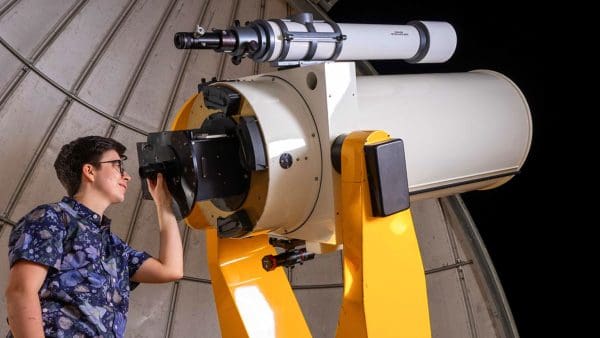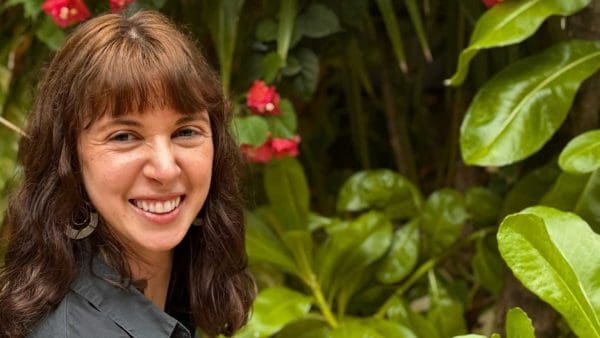Among the most startling insights of modern biology is how much of “you” is, well, not “you,” at least at the cellular level. All told, the microbiome—the community of single-celled microorganisms living in and on our bodies, and especially in the digestive tract—outnumbers human cells about 10 to 1. Researchers have only recently begun to understand the deep linkages between our health and these abundant microbiomic guests.
Biological connections have long fascinated Kent Kotaka. He is a molecular and cellular biology major who graduated in May 2022, and is set to complete his combined master’s degree in 2023. Kotaka recalls that when he incurred skinned knees and other typical childhood injuries, his grandparents, who practiced traditional Chinese medicine, often treated him with antibacterial herbs. “This made me realize organisms interact in many interesting ways in nature that we know very little about and can take advantage of,” says Kotaka.
Exploring the Human Microbiome
Intrigued, Kotaka later conducted research in high school through a college preparatory program on antimicrobial compounds produced by plants. The experience helped lead him to Johns Hopkins, with its emphasis on undergraduate research. And eventually, to exploring the human microbiome. Kotaka connected with a microbiome lab headed by William Ludington, a principal investigator in the Department of Embryology at the Carnegie Institution for Science. The department is located on Johns Hopkins’ Homewood campus and affiliated with the university. There, Kotaka has worked closely with another mentor, postdoctoral fellow Robert Scheffler, in studying bacteria that harmoniously coexist in the microbiome.
The researchers are looking into assisting these microbial communities to recover when disruptions occur, for instance from people taking antibiotics. A frequent side effect of the drugs is diarrhea because of collateral damage inflicted on beneficial microbiome residents. The importance of Kotaka’s work extends to chronically disrupted microbiomes, which are strongly associated with conditions including type 2 diabetes, obesity, and inflammatory bowel disease.
Lab Work
In the lab, Kotaka and colleagues are examining how two groups of bacteria, Acetobacter and Lactobacillus, get along in the guts of a special breed of Drosophila fruit flies. These flies can tolerate long periods without food, meaning their resident microbes must likewise deal with nutrient resource limitations. By adding ratios of the critical nutrients carbon (for energy metabolism) and nitrogen (for protein synthesis), the researchers can gauge when the bacterial groups reach a state of symbiotic cooperation. “If we know factors that contribute to the microbiome’s stability,” says Kotaka, “we are better informed about how to treat its instability and imbalance.”
Kotaka hopes ongoing microbiome investigations will inspire scientists to take more holistic approaches to biology. “For a long time, biology was about studying each cell, each protein, each gene in isolation,” says Kotaka. “But I think exciting patterns emerge when you focus on interactions that occur on organism, population, or even ecosystem levels.”




